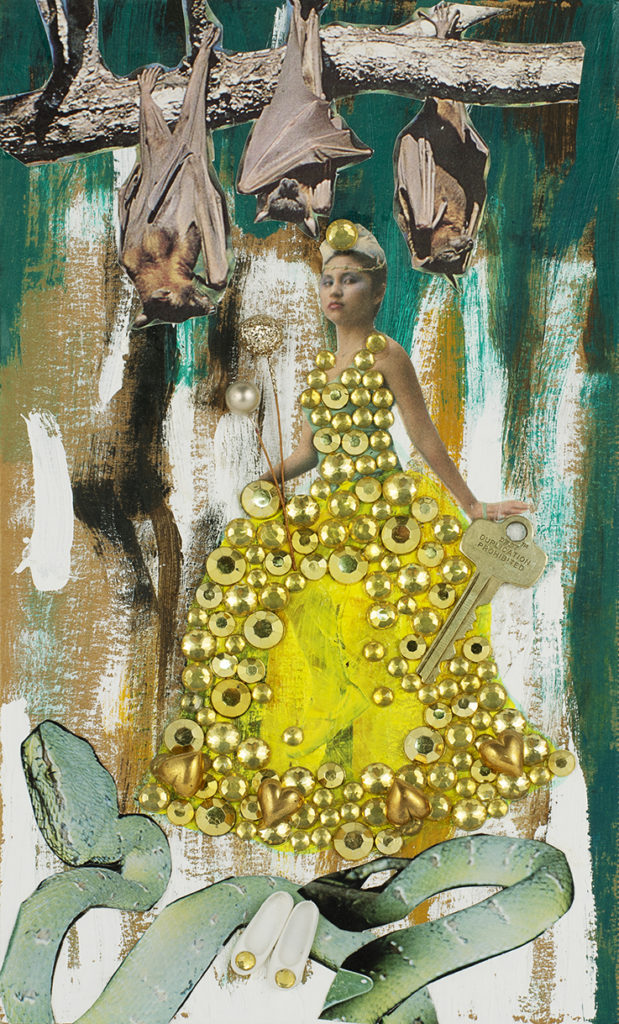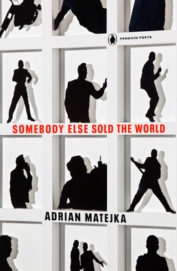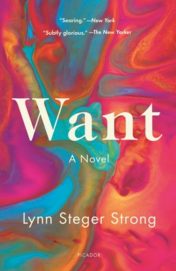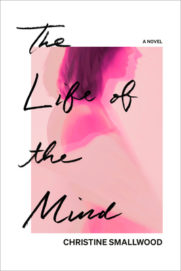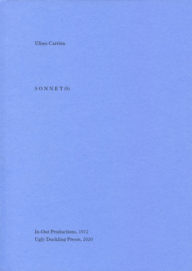by John Toren
Philosophy has long been held as the sovereign intellectual discipline for a simple reason: it can tell us what science (for example) is, while science can't tell us what philosophy is. Yet philosophy's commanding point of view and long history of asking elemental questions have never produced much widespread relevance to daily living, in comparison to, say, civil engineering, pop psychology, or law. It has become common, at least since Wittgenstein's day, for philosophers themselves to deny the loftiness of their discipline, often questioning not only the value, but also the very existence, of truth.
Of course, the denial of truth is also a form of truth, though its self-contradictory nature makes it a shallow one. The Spanish philosopher Ortega y Gasset has characterized the pursuit of truth (quoting Plato) as a noble sport, and I number myself among those who continue to engage in that pursuit, deriving nourishment from the classical philosophical tradition as well as attempting to digest new literature in the field. Several recent books are rife with potential stimulation; they range from an idiosyncratic survey to a powerful collection of essays, from semi-poetic personal musings to traditional biography and even something resembling self-help.
 The most accessible of the bunch might be How to Be an Epicurean (Basic Books, 2019). Here Catherine Wilson, who has held several academic posts in the course of her career, offers a well-organized and thorough, yet lively, account of the views of Epicurus, a Greek philosopher most often associated with a sybaritic approach to living that he himself rejected. Wilson makes it clear that Epicurus has some good advice to share based on a small number of common-sense principles, among the most important of which is that the single guiding principle of our behavior should be to avoid pain and pursue pleasure.
The most accessible of the bunch might be How to Be an Epicurean (Basic Books, 2019). Here Catherine Wilson, who has held several academic posts in the course of her career, offers a well-organized and thorough, yet lively, account of the views of Epicurus, a Greek philosopher most often associated with a sybaritic approach to living that he himself rejected. Wilson makes it clear that Epicurus has some good advice to share based on a small number of common-sense principles, among the most important of which is that the single guiding principle of our behavior should be to avoid pain and pursue pleasure.
Baldly expressed, such views sound shallow and egotistical. But Epicurus went on to reason that opulent dining and relentless sex, for example, were less pleasurable in the end than eating simple meals and spending time with friends. His was the only ancient school that admitted women, and he worked hard to tease out the distinction between what's natural and what's conventional on a wide range of social issues without slighting the significance of either.
Although most of Epicurus's writings have been lost, he was fortunate to have a Roman disciple, Lucretius, who wrote "The Nature of Things," a book-length poem that's widely considered the finest philosophical poem ever written. Wilson draws on it heavily in her analysis, though she also notes discrepancies between its views and those contained in the fragments of Epicurus's writings that have survived. Such quibbles don't undermine the orderly progress of her exposition, which moves from chapters on basic principles to a section on "living well and justly" with subheads such as "Why Be Moral" and "Don't Count on an Afterlife." Subsequent sections deal with Epicurean views on war, social justice, scientific explanation, and the problem of affluence, among many others.
Wilson's style is a model of clarity, and her personality shines though in patches of wry humor directed against nonsensical points of view. The one drawback is that her efforts to spell out the probable consequences of a particular type of behavior can occasionally be so thorough as to seem slightly labored, her tone coming to resemble that of a wise but gently hectoring schoolmarm.
In fact, readers may appreciate the coherence and good sense of Epicurus's views, described here in lavish detail, while harboring doubts about whether they offer a satisfactory explanation of life's charm, mystery, and aspirational energy. In the book's final chapters Wilson takes up that question, analyzing the four sources of religion identified by the Epicureans: wonder; personal experience; fear and gratitude; and tradition and authority:
Where wonder is concerned, what Epicurus calls “piety”—which can take the form of a feeling of gratitude for the world’s existence and for my existence in it—is not irrational, even if there is no one to be grateful to. It is worthy of wonder that the universe, with its order, regularity and beauty, could just appear. It feels miraculous, in some moments, that life, with its complexities of metabolism, regulation and reproduction, consciousness and intelligence, could emerge from combinations of chemical elements like carbon, hydrogen and oxygen. The beauty of shells, feathers and foliage makes them seem, as the philosopher Kant commented, as if they had been made for our pleasure in looking at them. Yet Epicureanism insists that, as miraculous as it might seem, nature alone has brought all this about without any purpose or intention.
In the end, Wilson leaves us with the impression that the world Epicurus describes is very much like our own. The science has been improved upon, there are broad political and metaphysical dimensions he left unexplored, but within the realm of personal conduct, we could do a lot worse than to follow his lead.
 In Philosopher of the Heart: The Restless Life of Søren Kierkegaard (Farrar, Straus and Giroux, 2020), Clare Carlisle, philosophy professor at King's College, London, walks us through the stages of Kierkegaard's life. Her book brings perhaps too much clarity to a mind that was feverishly consumed with irony and paradox, and to a man who was intent less on establishing philosophical principles of general validity than in chronicling his own unsteady path toward salvation.
In Philosopher of the Heart: The Restless Life of Søren Kierkegaard (Farrar, Straus and Giroux, 2020), Clare Carlisle, philosophy professor at King's College, London, walks us through the stages of Kierkegaard's life. Her book brings perhaps too much clarity to a mind that was feverishly consumed with irony and paradox, and to a man who was intent less on establishing philosophical principles of general validity than in chronicling his own unsteady path toward salvation.
Kierkegaard is considered easy reading among philosophers, in comparison to predecessors such as Hegel and Kant. One historian of the period, Terry Pinkard, notes that even to call Kierkegaard a philosopher would be misleading, in so far a Kierkegaard didn't think of himself that way. But while we must grant that Kierkegaard made an effort to express himself in ordinary language, rather than working to construct a grand “system,” the fact remains that he was seldom content to flesh out his positions simply or directly. No sooner does he make a point than he brings up qualifications and counter-examples, generally muddying the waters to the point where the reader might give up in despair. Kierkegaard often published his works under pseudonyms and concocted imaginary conversations, and sometimes described his works as “thought experiments,” not to be taken entirely seriously. Such literary strategies may seem evasive, but they have been described by scholars as attempts by Kierkegaard to move the minds of his reader into a new place beyond concepts and theories, in the same way that Socrates engaged his interlocutors in seemingly simple chains of reasoning in order to help them see, and admit to themselves, that the values and attitudes they took for granted were in need of revision.
All the same, Carlisle's biography is much clearer and easier to read than anything by Kierkegaard himself. One of the pleasures of Philosopher of the Heart is that it moves forward calmly and pleasantly, with none of the dithering, counter-thoughts, or clever but irrelevant asides that make Kierkegaard’s own work so difficult to stick with. Carlisle is confident that she knows what Kierkegaard was thinking at every point in his career, even to the point of asserting things for which there is no evidence whatsoever. For example: “Yet in all his writings, published and unpublished, Kierkegaard has never mentioned his mother. This is not because he had forgotten her; it is the silence owed to something sacred, which held him long before he knew how to speak.”
Philosopher of the Heart is not a critical biography. Carlisle makes little effort to identify concepts that Kierkegaard might have added to the repertoire of modern thought, confident that her subject’s anguished and mercurial personality, his vanity, his piety and delusions of grandeur, his spats with the bishop and the local press, and all the other dimensions of his personal life constitute a story worth telling. And they do. Not least among the book's merits is the fact that Carlisle does an excellent job of extracting short passages from Kierkegaard’s voluminous journals and publications, material that average readers are unlikely to investigate themselves. Of equal interest are the criticisms of Kierkegaard delivered by his friends, relatives, neighbors, professors, and rivals. For example, she notes that the thesis on irony Kierkegaard wrote as part of his advanced degree program “made a generally unpleasant impression” on one of the examiners because of its “verbosity and affectation.” Similarly, in the course of describing the trauma that accompanied Kierkegaard’s decision to break off his long-standing engagement to Regine Olsen, Carlisle mentions the philosopher Frederik Sibbern, who knew both parties well. She writes: “After the break-up, when [Regine] confided her ‘deep indignation’ at how Kierkegaard had ‘mistreated her soul!’ Sibbern told her that it would be worse if they were married, ‘for [Kierkegaard’s] spirit was continually preoccupied with itself.’”
Kierkegaard’s introspection was facilitated by the fact that his father had made a fortune in the wool trade and bequeathed his son a legacy sufficient both to sustain him throughout his life and also to finance the publication of his numerous books and pamphlets. Kierkegaard spent his days walking the streets of Copenhagen like a later-day Socrates, engaging passers-by in conversation and then returning home to write and read, untroubled by the need to earn a living. Though he was tormented throughout his adult life by anguish, anxiety, dread, and other “existential” feelings avant la lettre, it appears that they arose in response not only to a Christian God that seemed remote and evasive, but also to a Danish society that didn’t understand his work and increasing considered him a laughingstock.
It's easy to read Carlisle's biography without suffering much. Though she admits to disliking many of her subject's literary mannerisms and petty concerns, she made a decision early on to resist dwelling on such shortcomings, preferring to focus on Kierkegaard's moments of struggle and illumination rather than entering into a book-length quarrel with him. As she states in her preface, "this biography does not consider Kierkegaard's life from a remote, knowing perspective, but joins him on his journey and confronts its uncertainties with him." It's a good strategy, and the result is a well-researched and sympathetic portrait of a tormented and often unsympathetic man who may, nevertheless, have some important things to teach us about being human in the world.
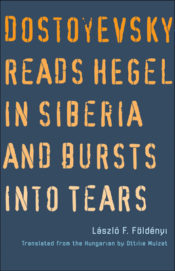 If you're looking for something a bit lighter than a tome about one of the giants of philosophy, a recently released collection of essays by the Hungarian scholar László F. Földényi as translated by Ottilie Mulzet might be just the ticket. It's compact—only 5 x 8 inches—but it carries the weighty, yet somehow playful, title Dostoyevsky Reads Hegel in Siberia and Bursts into Tears (Yale University Press, 2020), and the thirteen essays it contains offer a wide range of themes to explore and ponder.
If you're looking for something a bit lighter than a tome about one of the giants of philosophy, a recently released collection of essays by the Hungarian scholar László F. Földényi as translated by Ottilie Mulzet might be just the ticket. It's compact—only 5 x 8 inches—but it carries the weighty, yet somehow playful, title Dostoyevsky Reads Hegel in Siberia and Bursts into Tears (Yale University Press, 2020), and the thirteen essays it contains offer a wide range of themes to explore and ponder.
Földényi has a knack for sustaining readers’ interest through the musicality of his prose and the variety of his references, even when the point he's driving at remains obscure. He is also shrewd enough to cut away from his erudite ruminations from time to time, introducing instead a personal observation that becomes the focus of analysis for a time. As an extreme example, consider the essay "'For All but Fools Know Fear Sometimes': Fear and Freedom." Here Földényi begins by acknowledging the source of the title, a poem by Heine, but immediately abandons that allusion to begin exploring his personal familiarity with fear. He offers a litany of unhappy events that newspapers expose us to, day after day—environmental catastrophe, terrorism, the radical right, the radical left—but then questions whether it's actually fear we're experiencing:
Does anyone really experience fear of something not affecting him or her directly, with no influence on his or her momentary existence? It is possible to be apprehensive but not, I think, afraid. And that explains why I feel resistant to treating fear as a political category. For is not fear an infinitely private, individual phenomenon? And when a person is overcome by fear, does that person have regard for others—have that laudatory quality of the zoon politikon? Isn’t it exactly fear that makes an individual feel excluded from the universal? There are examples of individuals who sacrifice themselves for the sake of others in the midst of terrifying situations. I have never been in such a situation myself.
Földényi finally gets to the heart of the experience when he reflects on seeing his young son experience abject fear for the first time. It's a bodily thing, he realizes at that moment, or, more fully, a reaction of both body and soul that strips us entirely of what he considers the third basic element of our make-up: spirit.
Some of the essays cross almost-too-familiar ground—the blind spots and limitations of the Enlightenment, for example. Some are rooted in etymology, as when, in the essay "Mass and Spirit," he struggles to draw significance from the fact that the word "mass" can refer either to dead matter or to a multitude of living people, though its origins lie in the Greek term for kneading bread. In an essay with the lengthy title "'Only That Which Never Ceases to Hurt Stays in the Memory': Variations on the Human Body, Subjugated by Fantasies of Power," Földényi dwells at considerable length on the letters Lord Chesterfield sent to his adopted son. They were later published and became a model of decorum for two centuries. Földényi construes them as a testament to repression and domination that might have pleased the Marquis de Sade.
Földényi's great virtue is that he seldom labors his point, preferring to bubble on from one speculative thrust or associative leap to the next like an eighteenth-century philosophe. It's possible, and even likely, that readers will reach the end of a given piece without having been convinced of anything in particular, but they will have been given lots of interesting things to think about.
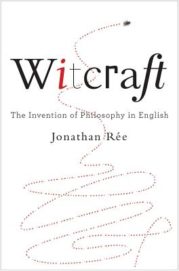 Witcraft: The Invention of Philosophy in English (Yale University Press, 2019) is similarly riddled with engaging bits, and considering that the book weighs in at almost three pounds, it obviously has more of them. In both the whimsical title and the first few pages of text, author Jonathan Rée tries to emphasize how dreadfully dull (and conceptually dubious) he considers most philosophical "surveys" to be, but there is no disguising the fact that with Witcraft he has written yet another one. The great strength of Rée's survey lies not in his judgments, which are sometimes confused or simply absent, but in the incidentals of the narrative. For example, his treatment of the concept of moral sense as it developed in Scotland and England in the mid-eighteenth century paints a fascinating picture of the interactions and rivalries, both social and conceptual, between Adam Smith, Francis Hutcheson, and the Third Earl of Shaftesbury. Their notions of right behavior based on an innate moral sense offered an attractive common-sense alternative to the divinely sanctioned program endorsed by the church:
Witcraft: The Invention of Philosophy in English (Yale University Press, 2019) is similarly riddled with engaging bits, and considering that the book weighs in at almost three pounds, it obviously has more of them. In both the whimsical title and the first few pages of text, author Jonathan Rée tries to emphasize how dreadfully dull (and conceptually dubious) he considers most philosophical "surveys" to be, but there is no disguising the fact that with Witcraft he has written yet another one. The great strength of Rée's survey lies not in his judgments, which are sometimes confused or simply absent, but in the incidentals of the narrative. For example, his treatment of the concept of moral sense as it developed in Scotland and England in the mid-eighteenth century paints a fascinating picture of the interactions and rivalries, both social and conceptual, between Adam Smith, Francis Hutcheson, and the Third Earl of Shaftesbury. Their notions of right behavior based on an innate moral sense offered an attractive common-sense alternative to the divinely sanctioned program endorsed by the church:
The evangelicals were appalled. Hutcheson made pious allusions to “the wonderful footsteps of Divine Wisdom in the constitution of our species”, but his Moral Philosophy course focused on the “principles of our nature”, and “affections and feelings of our hearts”, without appealing to God or the Bible. He compounded the offence with open lectures on Sundays in which he defended the “truth and excellency of Christianity” but made no reference to revelation; and during the week he gave three other supplementary classes, expounding “the finest writers of antiquity, both Greek and Latin, on the subject of morals.”
The running battle between dogma and conscience is an old story, but it still makes for good copy. Yet Rée never gets around to considering the philosophical issue involved: Is the concept of "moral sense" a necessary element in ethical deliberations, or can such deliberations be built, if not on scripture, then on "reason" or some other foundation? Kant, for one, felt not only that they could be so devised, but that they absolutely had to be. And speaking of Kant, Witcraft has a wonderful section on the men who introduced Kant's "transcendental philosophy" to England. He notes that the Scottish philosopher Dugald Stewart wrote an essay in 1821 suggesting that there was nothing new in Kant except his vocabulary, which, according to Stewart, gave rise to "extraordinary pretensions"' followed by "total oblivion."
Was there anything new in Kant's work? If so, Rée’s book will not be much help in discovering it, since two hundred pages later, in discussing Kant's efforts to transform mathematics, an analytic discipline, into some sort of model for truth, he writes: "The fact that [arithmetical judgments] can be informative or even surprising shows, according to Kant, that they are not merely analytic; but the fact that they are universal shows that they are not mere generalizations from empirical experience." Is this reasoning sound? No. It ignores the differentiation between formal logic (e.g. mathematics) and genuine logic (dialectic), thus perpetuating a long-standing error. And in the later chapters of his narrative, Rée devotes vast stretches of prose to the logical and grammatical analysis of Frege and Wittgenstein, while ignoring the far more significant work of Ortega y Gasset, Benedetto Croce, and other historicist thinkers almost entirely.
Still, if the philosophy is sometimes bad, the anecdotes are often very good. Rée has spent a lifetime combing the literature for lively details about philosophers both renowned and obscure, and the ample index makes it easy for readers to benefit from his fresh perspective on any specific problem or thinker they happen to be interested in.
In the introduction to Witcraft, Rée quotes approvingly the remark of Wittgenstein that "philosophy should be written like poetry." Yet Wittgenstein never wrote poetically, and neither does Rée. Why not? Because the two disciplines use different tools, and they're directed toward different ends. It remains far more likely that a poet might contribute to our understanding of philosophy than that a philosopher would add a few immortal stanzas to the poetic canon.
 These thoughts crossed my mind as I read Slight Exaggeration (Farrar, Straus and Giroux, 2017), a candid and brilliant book-length essay by the late poet Adam Zagejewski as masterfully translated by Clare Cavanagh. It consists of self-contained passages on a variety of subjects—some long, some short—arranged musically rather than conforming to a strict pattern or progression. Prominent among the themes are his father's life of displacement in Poland; his own career as a student of philosophy turned poet; his views on a wide assortment of poets, painters, and photographers; visits to galleries and art openings; and readings both given and attended. Zagejewski's style is relaxed and meditative, rolling from one thought or impression to the next, almost thinking out loud. And he has a gift for sharing anecdotes about eminent personal friends—Nobel Laureate Joseph Brodsky, for one—without sounding like he's simply name-dropping.
These thoughts crossed my mind as I read Slight Exaggeration (Farrar, Straus and Giroux, 2017), a candid and brilliant book-length essay by the late poet Adam Zagejewski as masterfully translated by Clare Cavanagh. It consists of self-contained passages on a variety of subjects—some long, some short—arranged musically rather than conforming to a strict pattern or progression. Prominent among the themes are his father's life of displacement in Poland; his own career as a student of philosophy turned poet; his views on a wide assortment of poets, painters, and photographers; visits to galleries and art openings; and readings both given and attended. Zagejewski's style is relaxed and meditative, rolling from one thought or impression to the next, almost thinking out loud. And he has a gift for sharing anecdotes about eminent personal friends—Nobel Laureate Joseph Brodsky, for one—without sounding like he's simply name-dropping.
Among my favorite passages is the one in which Zagejewski describes the delight he often feels on a German subway in the moment of complete silence following the loudspeaker announcement that the subway doors are about to close. In another notable passage, Zagejewski describes attending a small art gallery and being mesmerized, not by the paintings, but by the scenes taking place in apartments across the street as seen through a gallery window. In another episode he shares his views on the poets he read avidly during the lonely years he spent as a young man in Paris, wandering the streets, always with a book in his pocket, pausing on a bench from time to time to read. He analyses the poets involved, but brings added interest to this segment by identifying which edition of a given author he was reading, as if we need to be convinced that yes, that volume would have fit into his pocket.
Only occasionally does Zagejewski directly address the reality that underlies quite a few of his musings. He is content to call it "spirit," though he considers spirit to be a state we can arrive at only intermittently and briefly. At one point, examining the ups and downs of his own career, he observes that the darkness, the emptiness, the evident impotence of a poet who can't write a single line and fears that his gift has vanished once and for all is an essential moment in the creative process. At another point, massaging the same theme, he draws our attention to a woman described by Rilke in his letters as "living totally in the spirit," though she produced nothing of artistic interest and would have vanished from history were in not for Rilke's references. For his part, Rilke (whom Zagajewski greatly admires) confesses that he could "live in spirit" only occasionally.
Zagejewski describes a dialectical process between emptiness and creativity that might have pleased Hegel, but without Hegel's metahistorical baggage attached. Though he articulates it formally only in brief passages, similar thoughts occur to him again and again, as in this passage describing the emotional impact of late-Romantic classical music:
Sometimes in Bruckner we feel the bows vibrating, the cellos’ heavy hair swimming alongside the bass cry of the trumpets and trombones ... or more recently, in the first movement of Henryk Gorecki’s Third Symphony, when slow as the dawn, the orchestras cocoon unfolds—or, a different metaphor, we can imagine the hull of a massive ship emerging, slowly, from the mist. This incredibly sensual, palpable wall of sound stirs our entire body, but remains unseen. And perhaps it’s precisely this contrast—between overwhelming presence and invisibility— that moves us, leads us, momentarily, to another world, another way of being that we can only visit.
A few pages later, Zagajewski takes us even further out on that limb of unverifiable experience when he writes:
Great moments, instants of elation, of short-lived certainty, light, faith: they seem—since such things are fleeting by definition—to dissipate somewhere on the fringes of memory, after a certain point we cease to take them as seriously as they deserve (and as we do when they suddenly appear before us). Moreover, the ubiquitous mist of irony, the modern world's innate skepticism, mean that we scrutinize these moments critically after they’ve gone, as if we didn’t trust ourselves, we want to discard them, cast them aside, we refuse to let them complicate our lives, which are tangled enough as it is. But these moments form the base, the foundation of everything.
Is this philosophy? Mysticism? Poetry? Zagejewski gave up philosophy early in his career, though that was his chosen field at university, but it’s clear it stays with him here. If he can be said to have a philosophy, it's a simple one, and it can be found in the book's title: Slight Exaggeration. Genuine poetry—and perhaps living itself?—invariably contains an element of exaggeration. That's the spiritual oomph, the celebratory cry, the zany and unjustifiable assertion, the promise of meaning for which there is no proof—or the cry into the darkness, something essential that's been lost, displaced, an insatiable yearning to find our way home.
Click here to purchase How to Be An Epicurean
at your local independent bookstore

Click here to purchase Philosopher of the Heart
at your local independent bookstore

Click here to purchase Dostoyevsky Reads Hegel In Siberia And Bursts Into Tears
at your local independent bookstore

Click here to purchase Witcraft
at your local independent bookstore

Click here to purchase Slight Exaggeration
at your local independent bookstore


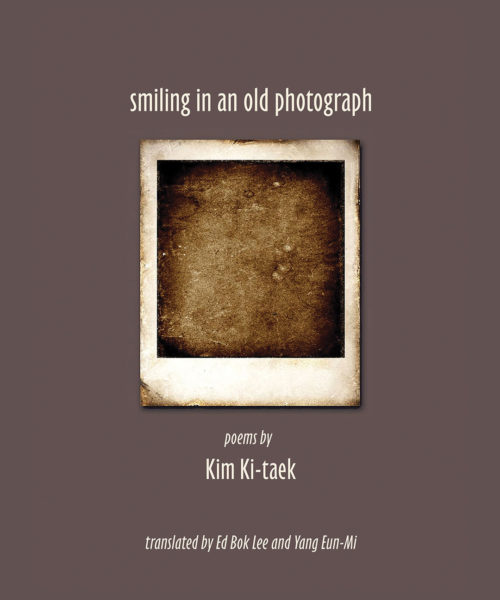


 Born in Anyang, South Korea in 1957, Kim Ki-taek graduated from Chung-Ang University with a degree in English literature and from Kyung Hee University’s graduate school with a degree in Korean literature. His poetry first appeared in 1989 in the Hankook Ilbo’s Annual Spring Literary Contest. His major works include Fetal Sleep (1991), Storm in the Eye of a Needle (1994), Office Worker (1999), Cow (2005), Chewing Gum (2009), Splitting, Splitting (2012), and Where Has the Dog Gone Leaving Its Bark Behind (2018), as well as El Chicle, a Spanish translation of Chewing Gum published in 2012 in Mexico, a Japanese translation of Storm in the Eye of a Needle, and Chiclete, a collection of selected poems published into Portuguese. He is the recipient of the Kim Soo-young Literary Prize, the Hyundae Literary Award, the Yi Soo Literary Prize, the Midang Literary Award, the Jihoon Literary Award, the Sanghwa Poetry Award, and the Pyeongun Literature Prize, among many others. He currently teaches in the Department of Media and Creative Writing at Kyung Hee Cyber University, in Seoul.
Born in Anyang, South Korea in 1957, Kim Ki-taek graduated from Chung-Ang University with a degree in English literature and from Kyung Hee University’s graduate school with a degree in Korean literature. His poetry first appeared in 1989 in the Hankook Ilbo’s Annual Spring Literary Contest. His major works include Fetal Sleep (1991), Storm in the Eye of a Needle (1994), Office Worker (1999), Cow (2005), Chewing Gum (2009), Splitting, Splitting (2012), and Where Has the Dog Gone Leaving Its Bark Behind (2018), as well as El Chicle, a Spanish translation of Chewing Gum published in 2012 in Mexico, a Japanese translation of Storm in the Eye of a Needle, and Chiclete, a collection of selected poems published into Portuguese. He is the recipient of the Kim Soo-young Literary Prize, the Hyundae Literary Award, the Yi Soo Literary Prize, the Midang Literary Award, the Jihoon Literary Award, the Sanghwa Poetry Award, and the Pyeongun Literature Prize, among many others. He currently teaches in the Department of Media and Creative Writing at Kyung Hee Cyber University, in Seoul.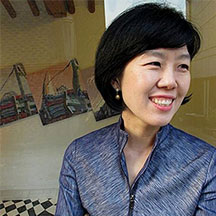 Yi Won is a South Korean avant-garde poet and essayist, born in 1968 in Gyeonggi-do. She studied Creative Writing at the Seoul Institute of the Arts and earned her master’s degree at the Graduate School of Culture and Arts at Dongguk University. Her poetry debuted in 1992, and she received the Contemporary Poetics Award (2002), Contemporary Poetry Award (2005), Opening the World with Poetry Award (2014), The Beginning Award (2014), The Equity Literature Award (2018), and the Poet Town Literary Award (2018). Her books include When They Ruled the Earth (1996), A Thousand Moons Rising Over the River of Yahoo! (2001), The World’s Lightest Motorcycle (2007), The History of an Impossible Page (2012), Let Love be Born (2017), and I Am My Affectionate Zebra (2018). She lives in Seoul, South Korea, and works at the Seoul Institute of the Arts as a professor of Creative Writing, School of Creative Writing.
Yi Won is a South Korean avant-garde poet and essayist, born in 1968 in Gyeonggi-do. She studied Creative Writing at the Seoul Institute of the Arts and earned her master’s degree at the Graduate School of Culture and Arts at Dongguk University. Her poetry debuted in 1992, and she received the Contemporary Poetics Award (2002), Contemporary Poetry Award (2005), Opening the World with Poetry Award (2014), The Beginning Award (2014), The Equity Literature Award (2018), and the Poet Town Literary Award (2018). Her books include When They Ruled the Earth (1996), A Thousand Moons Rising Over the River of Yahoo! (2001), The World’s Lightest Motorcycle (2007), The History of an Impossible Page (2012), Let Love be Born (2017), and I Am My Affectionate Zebra (2018). She lives in Seoul, South Korea, and works at the Seoul Institute of the Arts as a professor of Creative Writing, School of Creative Writing.
 Yang Eun-Mi is a poet, translator, and lecturer in South Korea. She has a master’s in creative writing from the University of Edinburgh, where she won the Grierson Verse Prize. Her poems have appeared in many literary magazines and anthologies in Korea, the USA, and the UK, and have been nominated for the 2015 Best of the Net Awards in the US. Her translation work has appeared in Asymptote, the Guardian, and other journals. She is the recipient of awards from the GKL Foundation (fiction translation) and the Korea Times Modern Literature Translation Grand Prize in Poetry (co-translator, Ed Bok Lee), and has received multiple grants from the Daesan Foundation, and the Literature Translation Institute of Korea. She currently teaches Korean Language and Literature at Hanshin University in South Korea.
Yang Eun-Mi is a poet, translator, and lecturer in South Korea. She has a master’s in creative writing from the University of Edinburgh, where she won the Grierson Verse Prize. Her poems have appeared in many literary magazines and anthologies in Korea, the USA, and the UK, and have been nominated for the 2015 Best of the Net Awards in the US. Her translation work has appeared in Asymptote, the Guardian, and other journals. She is the recipient of awards from the GKL Foundation (fiction translation) and the Korea Times Modern Literature Translation Grand Prize in Poetry (co-translator, Ed Bok Lee), and has received multiple grants from the Daesan Foundation, and the Literature Translation Institute of Korea. She currently teaches Korean Language and Literature at Hanshin University in South Korea. E. J. Koh is the author of the memoir The Magical Language of Others (Tin House Books, 2020), winner of the Washington State Book Award and Pacific Northwest Book Award, and the poetry collection A Lesser Love (Louisiana State University Press, 2017), winner of the Pleiades Editors Prize for Poetry. She is the co-translator, with Marci Calabretta Cancio-Bello, of Yi Won’s poetry collection The World’s Lightest Motorcycle (Zephyr Press, 2021). Koh has received fellowships from the American Literary Translators Association, MacDowell, and Kundiman. Her poems, translations, and stories have appeared in AGNI, Boston Review, Los Angeles Review of Books, Poetry, Slate, and elsewhere. Koh earned her MFA at Columbia University in Creative Writing and Literary Translation, and is a PhD candidate at the University of Washington studying Korean American literature, history, and film.
E. J. Koh is the author of the memoir The Magical Language of Others (Tin House Books, 2020), winner of the Washington State Book Award and Pacific Northwest Book Award, and the poetry collection A Lesser Love (Louisiana State University Press, 2017), winner of the Pleiades Editors Prize for Poetry. She is the co-translator, with Marci Calabretta Cancio-Bello, of Yi Won’s poetry collection The World’s Lightest Motorcycle (Zephyr Press, 2021). Koh has received fellowships from the American Literary Translators Association, MacDowell, and Kundiman. Her poems, translations, and stories have appeared in AGNI, Boston Review, Los Angeles Review of Books, Poetry, Slate, and elsewhere. Koh earned her MFA at Columbia University in Creative Writing and Literary Translation, and is a PhD candidate at the University of Washington studying Korean American literature, history, and film.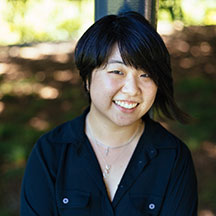 Marci Calabretta Cancio-Bello is the author of Hour of the Ox (University of Pittsburgh, 2016), which won the Donald Hall Prize for Poetry. Her work has appeared in Best Small Fictions, Kenyon Review Online, Orion, The New York Times, and been anthologized in You Don’t Have to Be Everything: Poems for Girls Becoming Themselves (Workman Publishing, 2021), Grabbed: Poets & Writers on Sexual Assault, Empowerment & Healing (Beacon, 2020), and Ink Knows No Borders: Poems on the Immigrant and Refugee Experience (Seven Stories Press, 2019). The recipient of fellowships from the American Literary Translators Association and Kundiman, Cancio-Bello earned an MFA in Poetry from Florida International University, where she was a John S. and James L. Knight Foundation Fellow. She is the poetry coordinator for the Miami Book Fair.
Marci Calabretta Cancio-Bello is the author of Hour of the Ox (University of Pittsburgh, 2016), which won the Donald Hall Prize for Poetry. Her work has appeared in Best Small Fictions, Kenyon Review Online, Orion, The New York Times, and been anthologized in You Don’t Have to Be Everything: Poems for Girls Becoming Themselves (Workman Publishing, 2021), Grabbed: Poets & Writers on Sexual Assault, Empowerment & Healing (Beacon, 2020), and Ink Knows No Borders: Poems on the Immigrant and Refugee Experience (Seven Stories Press, 2019). The recipient of fellowships from the American Literary Translators Association and Kundiman, Cancio-Bello earned an MFA in Poetry from Florida International University, where she was a John S. and James L. Knight Foundation Fellow. She is the poetry coordinator for the Miami Book Fair. Lee Herrick (moderator) is the author of three books of poems, Scar and Flower, Gardening Secrets of the Dead, and This Many Miles from Desire. His poems have published in textbooks and anthologies such as Indivisible: Poems of Social Justice, with a foreword by Common, Dear America: Letters of Hope, Habitat, Defiance, and Democracy, and Here: Poems for the Planet, with an introduction by the Dalai Lama, among others. He co-edited The World I Leave You: Asian American Poets on Faith and Spirit. Born in Daejeon, Korea and adopted to the United States, he served as Fresno Poet Laureate (2015-2017). He teaches at Fresno City College and the MFA Program at Sierra Nevada University.
Lee Herrick (moderator) is the author of three books of poems, Scar and Flower, Gardening Secrets of the Dead, and This Many Miles from Desire. His poems have published in textbooks and anthologies such as Indivisible: Poems of Social Justice, with a foreword by Common, Dear America: Letters of Hope, Habitat, Defiance, and Democracy, and Here: Poems for the Planet, with an introduction by the Dalai Lama, among others. He co-edited The World I Leave You: Asian American Poets on Faith and Spirit. Born in Daejeon, Korea and adopted to the United States, he served as Fresno Poet Laureate (2015-2017). He teaches at Fresno City College and the MFA Program at Sierra Nevada University. Bomi Yoon (interpreter) is a Ph.D. candidate in English at the University of Minnesota. Her scholarship focuses on the everyday experience and relationship between race and transnational identities in literature and performances. Bomi is also a Co-Director of the Korean Institute of Minnesota (KIM), an organization that provides Korean language and cultural education to people with links to Korea and the community at large.
Bomi Yoon (interpreter) is a Ph.D. candidate in English at the University of Minnesota. Her scholarship focuses on the everyday experience and relationship between race and transnational identities in literature and performances. Bomi is also a Co-Director of the Korean Institute of Minnesota (KIM), an organization that provides Korean language and cultural education to people with links to Korea and the community at large.









